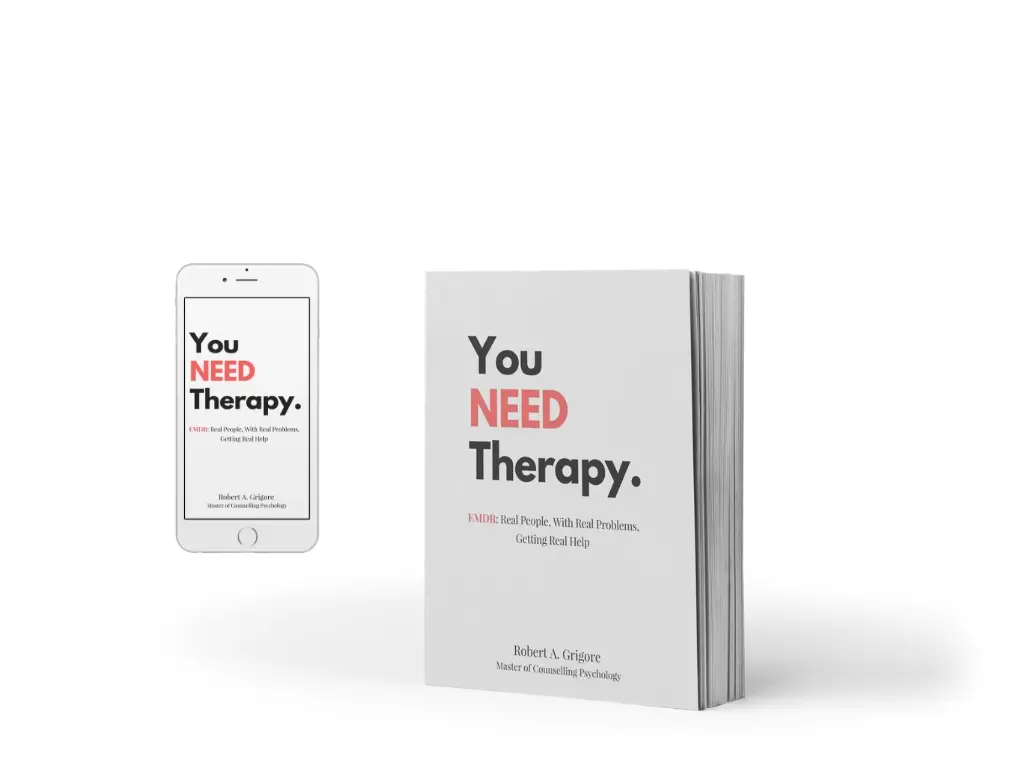When exploring therapy options, it can be hard to know where to start. Many try to figure CBT vs. DBT vs. EMDR, as those are some of the most effective evidence-based therapies available today. But how do they differ? And which one is the right fit for your unique situation?
Grigore Counselling helps clients every day navigate these choices. In this guide, we’ll break down CBT vs. DBT vs. EMDR clearly—so you can make an informed decision about your healing journey.
CBT vs. DBT vs. EMDR: What Is CBT?
Cognitive Behavioural Therapy (CBT) is one of the most researched and widely used types of therapy. It’s based on the idea that your thoughts, feelings, and behaviours are interconnected. When you learn to identify and change unhelpful thinking patterns, you can improve your emotions and actions.
Who is CBT for?
CBT works well for people experiencing:
- Anxiety
- Depression
- Stress
- Phobias
- Obsessive-Compulsive Disorder (OCD)
- Post-Traumatic Stress Disorder (PTSD)
- Sleep problems
- Negative thinking patterns
What does CBT involve?
CBT is typically short-term and structured. You’ll learn practical tools like:
- Identifying cognitive distortions
- Challenging negative beliefs
- Developing healthier thinking patterns
- Behavioural activation
- Stress management
It often involves homework between sessions to reinforce skills.
When is CBT the right choice?
Choose CBT if you want to:
- Focus on present-day issues
- Learn actionable coping strategies
- Build long-term mental health resilience
CBT is a great starting point for many people new to therapy. But let’s continue with CBT vs. DBT vs. EMDR.
CBT vs. DBT vs. EMDR: What Is DBT?
Dialectical Behaviour Therapy (DBT) evolved from CBT but adds an important focus on emotional regulation and interpersonal effectiveness. It’s especially helpful for those who experience intense emotions or struggle with relationships.
Who is DBT for?
DBT is highly effective for:
- Emotion dysregulation
- Borderline Personality Disorder (BPD)
- Self-harm behaviours
- Suicidal thoughts
- Chronic feelings of emptiness
- PTSD
- Complex trauma
What does DBT involve?
DBT combines individual therapy with skills training in four key areas:
- Mindfulness
- Emotion regulation
- Distress tolerance
- Interpersonal effectiveness
Therapists balance acceptance with change—helping you build a life worth living.
When is DBT the right choice?
Choose DBT if you:
- Feel out of control emotionally
- Struggle with unstable relationships
- Engage in self-destructive behaviours
- Want to build stronger coping and communication skills
Grigore Counselling often recommends DBT for clients facing difficulty regulating emotions. Let’s continue with CBT vs. DBT vs. EMDR.
CBT vs. DBT vs. EMDR: What Is EMDR?
Eye Movement Desensitization and Reprocessing (EMDR) is a specialized therapy designed to help you process and resolve traumatic memories. It uses bilateral stimulation (often guided eye movements) to help your brain reprocess distressing events so they no longer cause intense emotional reactions.
Who is EMDR for?
EMDR is effective for:
- PTSD
- Complex trauma
- Childhood abuse or neglect
- Phobias
- Anxiety
- Grief and loss
- Medical trauma
What does EMDR involve?
EMDR typically follows an eight-phase protocol. After building trust and emotional safety, your therapist will guide you through processing traumatic memories using bilateral stimulation.
This process helps reduce the emotional charge of the memory—allowing you to move forward without being stuck in the past.
When is EMDR the right choice?
Choose EMDR if you:
- Struggle with unresolved trauma
- Experience flashbacks, nightmares, or intrusive memories
- Feel stuck despite other therapy methods
- Want to process difficult experiences safely and effectively
EMDR can complement CBT and DBT, or serve as a primary therapy for trauma recovery.
CBT vs. DBT vs. EMDR: How Do I Choose?
When comparing CBT vs. DBT vs. EMDR, the best choice depends on your specific goals, symptoms, and needs.
If you want to:
- Address anxiety or depression → CBT
- Build emotional regulation skills → DBT
- Process trauma → EMDR
If you:
- Have high emotional sensitivity → DBT
- Want practical, structured tools → CBT
- Feel stuck in traumatic memories → EMDR
Grigore Counselling has an experienced team offers all three modalities and can help you find the best fit. Often, therapy is not one-size-fits-all. Many clients combine approaches. For example:
- CBT + EMDR for trauma with anxiety
- DBT + EMDR for complex trauma and emotional regulation
- CBT + DBT for managing depression and relationship challenges
During your initial consultation, we’ll help assess what combination will best support your healing.
Why It’s Important to Work with a Trauma-Informed Therapist
Whether you choose CBT, DBT, or EMDR, working with a trauma-informed therapist is key. Many people seek therapy for anxiety, depression, or relationship issues—without realizing underlying trauma may be driving these patterns.
At Grigore Counselling, our clinicians bring trauma-informed care to every session. This means we prioritize your emotional safety, honour your pace, and focus on true healing—not just symptom management.
CBT vs. DBT vs. EMDR: Ready to Start?
If you’re wondering, CBT vs. DBT vs. EMDR—which one is right for me?, know this: you don’t have to figure it out alone.
Contact Grigore Counselling today to schedule your consultation. Together, we’ll explore the therapy options that best fit your goals and help you take the next step toward lasting change.
FAQ on CBT vs. DBT vs. EMDR
Is EMDR more effective than CBT or DBT?
It depends on your needs. EMDR is highly effective for trauma processing, while CBT and DBT offer strong tools for anxiety, depression, and emotional regulation. Many clients benefit from a combination.
Can I do CBT, DBT, and EMDR at the same time?
Yes, many clients integrate approaches. For example, using CBT skills to manage day-to-day anxiety while working through trauma with EMDR, and building emotion regulation with DBT.
How do I know if trauma is affecting me?
Common signs include flashbacks, nightmares, emotional numbness, relationship difficulties, or unexplained anxiety. A trauma-informed therapist can help you explore these symptoms safely.











